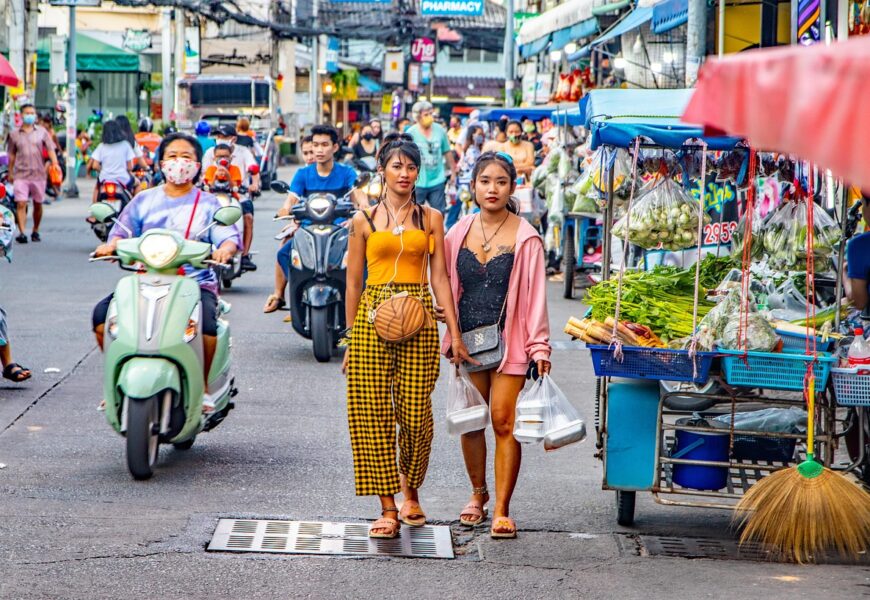Thailand represents a fascinating and complex society where women play increasingly dynamic and multifaceted roles across social, economic, and cultural landscapes. Understanding Thai women requires a nuanced perspective that goes beyond superficial stereotypes and explores the rich tapestry of their lived experiences. From traditional cultural expectations to modern professional achievements, Thai women navigate a unique environment shaped by historical traditions, Buddhist influences, and rapid societal transformations.
Historical and Cultural Context of Thai Women
The historical trajectory of Thai women reveals a remarkable journey of adaptation and resilience. Traditionally, Thai society maintained strongly hierarchical structures where women were expected to fulfill specific familial and social roles. Buddhist cultural influences emphasized virtues of patience, respect, and familial dedication. Women were primarily viewed as caretakers, managing household responsibilities and supporting extended family networks. However, throughout the 20th century, significant social shifts occurred, challenging these traditional paradigms.
Educational opportunities expanded dramatically, enabling more women to pursue higher education and professional careers. By the late 20th century, Thai women began entering previously male-dominated fields like business, technology, and government, fundamentally reshaping societal expectations. Contemporary Thai women represent a complex blend of traditional values and modern aspirations, skillfully balancing cultural heritage with progressive personal goals.
Educational Achievements and Professional Landscape
Contemporary Thai women demonstrate remarkable educational achievements that have transformed their societal opportunities. Current statistics indicate that women in Thailand consistently outperform men in university enrollment, with approximately 60% of university graduates being female. This educational advantage has translated into significant professional achievements across multiple sectors. Women now occupy leadership positions in corporations, government agencies, and entrepreneurial ventures, challenging historical gender limitations.
The professional landscape for Thai women continues to evolve, with increasing representation in fields like technology, finance, healthcare, and creative industries. Many young Thai women actively pursue international education and global career opportunities, bringing sophisticated skills and perspectives back to their home country. This trend represents a powerful mechanism for social transformation, challenging traditional gender expectations and creating new models of professional success.
Social Dynamics and Gender Relationships
Gender dynamics in Thailand represent a nuanced and complex system influenced by cultural, religious, and economic factors. While traditional patriarchal structures persist, contemporary Thai society increasingly embraces more egalitarian perspectives. Women actively negotiate social spaces, challenging restrictive norms while maintaining respect for cultural traditions. The concept of ‘kreng jai’ – a cultural principle emphasizing consideration and indirect communication – plays a significant role in how gender interactions are managed.
Modern Thai women demonstrate remarkable agency in personal and professional relationships. They strategically leverage cultural knowledge while pursuing individual aspirations. Dating and marriage practices have also transformed, with increasing numbers of women choosing independence, delaying marriage, and prioritizing personal development. Urban centers like Bangkok represent particularly progressive environments where women enjoy greater social mobility and personal freedom.
Challenges and Social Pressures
Despite significant progress, Thai women continue to navigate complex social challenges. Gender-based discrimination remains prevalent in certain professional and social contexts. Economic disparities, workplace inequalities, and persistent cultural expectations create ongoing obstacles. Sexual harassment, unequal pay, and limited leadership opportunities represent continuing areas of concern for many women in Thailand.
Moreover, traditional familial expectations often create additional pressures. Many women must simultaneously manage professional ambitions and extensive familial responsibilities. The cultural emphasis on supporting extended family networks can create significant emotional and financial burdens, particularly for women in middle-class urban environments.
Cultural Identity and Global Perspectives
Thai women increasingly represent a global demographic, combining local cultural identity with international perspectives. Enhanced connectivity, educational opportunities, and economic mobility have enabled many women to develop sophisticated, transnational identities. Language skills, technological proficiency, and adaptability characterize this emerging generation of Thai women who seamlessly navigate multiple cultural contexts.
The intersection of traditional Thai cultural values with contemporary global influences creates a unique and dynamic social environment. Women play a crucial role in mediating these complex cultural transitions, serving as critical agents of social transformation and cultural adaptation.
Understanding Thai women requires moving beyond simplistic stereotypes and recognizing the profound complexity of their experiences. From educational achievements to professional success, from cultural traditions to global perspectives, Thai women represent a dynamic and increasingly influential social group. Their journey reflects broader narratives of social change, individual agency, and cultural resilience. As Thailand continues to evolve, women will undoubtedly play a pivotal role in shaping the nation’s future, bridging traditional values with progressive aspirations.









